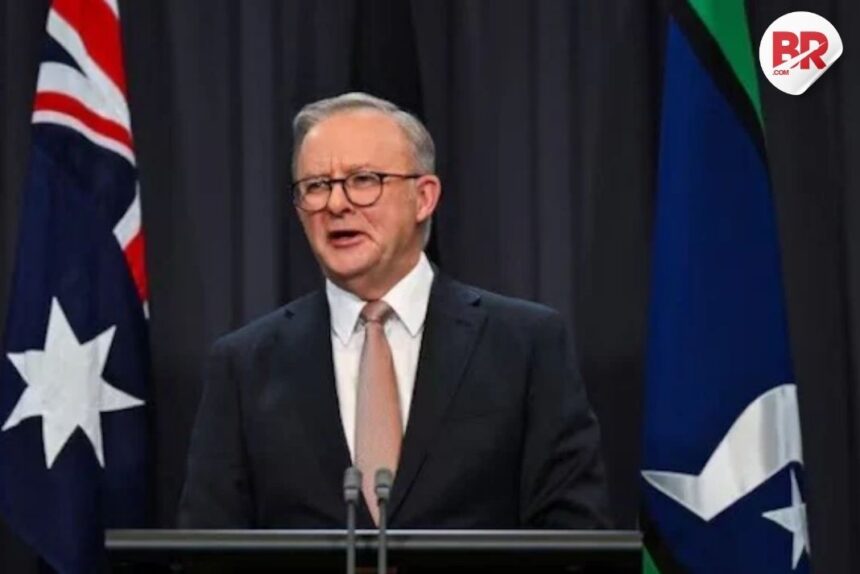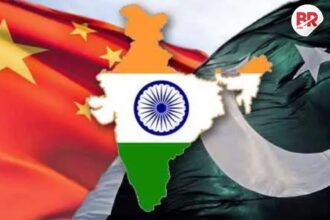
Australia’s Prime Minister, Anthony Albanese, has been re-elected in a massive victory, surprising many who thought his time was up. His Labor party is set to win many more seats, while the opposition – the Liberal-National Coalition – has suffered a huge loss across the country.
Albanese said the result showed Australians believe in fairness, equal opportunity, and helping those in need.

Opposition leader Peter Dutton lost not only the election but also his own seat after 24 years in Parliament. He accepted full responsibility for the loss and apologized to his team.
Leaders from the UK and US congratulated Albanese and said they looked forward to stronger ties with Australia.
Key Election Issues
During the five-week campaign, the cost of living, especially rising prices for healthcare and housing, was the main concern. Foreign policy also played a role, particularly the question of how Australia would handle relations with Donald Trump if he returned to power in the U.S.
Dutton was often compared to Trump because of his tough policies on immigration, spending cuts, and dealing with China. Many voters didn’t like this comparison.
Former PM Malcolm Turnbull said Dutton’s campaign was very similar to Trump’s style, and that it hurt his chances.
Read More: What’s Really Happening to China’s Economy? U.S. Imports Give the Answer
Labor’s Strong Performance
Labor gained support all over Australia – something very rare for a government trying to win a second term. Albanese is now the first Australian prime minister in more than 20 years to win back-to-back elections.
This victory also shows that more people are sticking with the major parties again, reversing a trend from the last election.
According to early results from the ABC (Australian Broadcasting Corporation):
- Labor is expected to win 86 seats
- The Coalition will get around 40
- The Greens may win 1 or 2 seats
- Other independents and smaller parties could win 9 seats
Labor increased its seats by nine, while the Greens saw a drop. Most of the moderate “teal” independents were re-elected in city areas.
From Under Pressure to Landslide Winner
Earlier this year, Albanese’s popularity had hit record lows due to economic struggles and dissatisfaction with the government. Many believed he would be voted out.
Meanwhile, Dutton was gaining momentum and looked like he might pull off a huge comeback for his party. But instead, he suffered a historic loss – including losing his own seat to Labor’s Ali France.
Dutton admitted defeat and said his party would rebuild, promising to stay true to their values.
His campaign had several problems, including unclear policies, public mistakes, and even accidentally kicking a football into a cameraman’s head.
Labor’s Calm but Safe Approach
Experts said the opposition looked messy and disorganized. Labor, on the other hand, ran a safe and steady campaign. Instead of offering bold new ideas, they focused on showing how unfit the opposition was to lead.
Albanese promised to make GP visits cheaper, help people buy homes, take stronger action on climate change, and close the gap between Indigenous and non-Indigenous Australians. This last point referred to the failed 2023 Voice referendum, which aimed to give Indigenous people a greater say in parliament but was rejected by voters.
Many Indigenous Australians feel ignored since then.
Also See: How Albanese’s Labor Party Defied the Odds in Australia’s Most Crucial Election Yet
What’s Next for Labor and the Opposition?
The Coalition will now have to think deeply about its future, especially after moving further to the political right in recent years. Some members warned before that Dutton might not be the best leader to win back moderate voters.
After using culture-war-style politics and being compared to Trump, the party now has to ask if that strategy works – or if they need a new path forward.
Meanwhile, Labor now has a strong mandate to lead. Voters chose stability during uncertain global times, but experts say the government now has a chance to be bolder and achieve more.
As political analyst Amy Remeikis said, “They’ve got the power – now the question is: will they use it to make real change?












